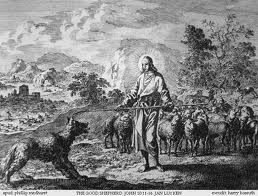“The sower sows the word.” (Mark 4:14 ESV)
“Neither he who plants nor he who waters is anything, but only God who gives the growth.” (1 Corinthians 3:7 ESV)
“For as the rain and the snow come down from heaven and do not return there but water the earth, making it bring forth and sprout, giving seed to the sower and bread to the eater, so shall my word be that goes out from my mouth; it shall not return to me empty, but it shall accomplish that which I purpose, and shall succeed in the thing for which I sent it. (Isaiah 55:10-11 ESV)
Harsh climate, bugs, soil deficiencies are all problems that farmers face in their attempt to grow a profitable crop. Factors outside of the control of the farmer can make their task a frustrating one, even devastating. For centuries this was just part of sowing seed. There was no modern equipment or genetic science, the potential for life was entirely in the seed. All the sower of that seed could do was cast the potential upon the ground and pray to God that it would be fruitful. In our time the progress in the field of genetics has made it possible to mutate seed in order to make it more fruitful and in some ways to counteract for a hostile environment. This often yields results, but the problem is that mutated seeds produce mutated plants. The final product is changed because the seed is changed. Just as farmers will use genetically mutated seeds in order to counteract for a hostile environment, so Christians, entrusted with the seed of God’s word, can be tempted to offer a mutated word in an attempt to make a seed that the hostile heart-soil won’t reject on contact. Many well-meaning people do this by changing how they introduce truths or by adapting terminology, dressing up the message. They will borrow from the religion they are engaging in a way which cloaks the seed in a type of “insecticide” or “herbicide”, all with the argument that the seed just needs to be able to take root. We see this especially in evangelism to those of other religions but also in seeker-sensitive preaching, in entertainment driven ministry, and even in the way we share our faith with those around us. We try to rescue the message from its folly and we try to smooth down the stone of stumbling that it is. The frightening thing about mutated seed is that it may look like it is working, but it is producing mutated plants. The seed of the word has been entrusted to us by God. Our job as the church is to sow the word, and when little plants spring up we water it with the word. The growth is God’s department. When we try to put our focus on “fruitful practices” we are trying to reverse engineer something that only the Spirit of God can do. Our job is to be faithful to the revelation we have been given, constantly working to separate out the chaff from our bag of seed by going deeper in the word. This makes spreading the word very simple. Take the message that has been passed down and pass it on. It’s not rocket science. Planting is simply planting. The potential for life is in the plain seed of the word, all of the other things are factors outside of our control. Don’t judge whether a ministry practice is right by how effective it is. Take the seed, the glorious gospel of the kingdom, pray, spread it everywhere, and pray some more. Those that God has prepared to receive it, will receive it.




